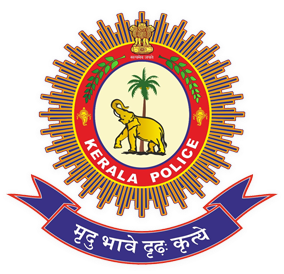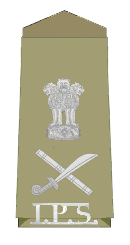Related Research Articles
A quality management system (QMS) is a collection of business processes focused on consistently meeting customer requirements and enhancing their satisfaction. It is aligned with an organization's purpose and strategic direction. It is expressed as the organizational goals and aspirations, policies, processes, documented information, and resources needed to implement and maintain it. Early quality management systems emphasized predictable outcomes of an industrial product production line, using simple statistics and random sampling. By the 20th century, labor inputs were typically the most costly inputs in most industrialized societies, so focus shifted to team cooperation and dynamics, especially the early signaling of problems via a continual improvement cycle. In the 21st century, QMS has tended to converge with sustainability and transparency initiatives, as both investor and customer satisfaction and perceived quality are increasingly tied to these factors. Of QMS regimes, the ISO 9000 family of standards is probably the most widely implemented worldwide – the ISO 19011 audit regime applies to both and deals with quality and sustainability and their integration.
The ISO 9000 family is a set of five quality management systems (QMS) standards by the International Organization for Standardization (ISO) that help organizations ensure they meet customer and other stakeholder needs within statutory and regulatory requirements related to a product or service. ISO 9000 deals with the fundamentals and vocabulary of QMS, including the seven quality management principles that underlie the family of standards. ISO 9001 deals with the requirements that organizations wishing to meet the standard must fulfill. ISO/TS 9002 offers guidelines for the application of ISO 9001. ISO 9004 gives guidance on achieving sustained organizational success.

Law enforcement in India is imperative to keep justice and order in the nation. Indian law is enforced by a number of agencies. Unlike many federal nations, the constitution of India delegates the maintenance of law and order primarily to the states and territories.
ISO/IEC 20000 is the international standard for IT service management. It was developed in 2005 by ISO/IEC JTC1/SC7 and revised in 2011 and 2018. It was originally based on the earlier BS 15000 that was developed by BSI Group.
The Indian Defence services have established numerous academies and staff colleges across India for the purpose of training professional soldiers in military sciences, warfare command and strategy, and associated technologies.

The Bureau of Indian Standards (BIS) is the National Standards Body of India under Department of Consumer affairs, Ministry of Consumer Affairs, Food & Public Distribution, Government of India. It is established by the Bureau of Indian Standards Act, 2016 which came into effect on 12 October 2017. The Minister in charge of the Ministry or Department having administrative control of the BIS is the ex-officio President of the BIS. BIS has 500 plus scientific officers working as Certification Officers, Member secretaries of technical committees and lab OIC's.

Maharashtra Police is the law enforcement agency responsible for the Indian state of Maharashtra. It is headed by Director General of Police, Mrs. Rashmi Shukla (IPS), and headquartered in Mumbai, Maharashtra.

Pune Junction railway station is the main railway junction of the city of Pune, India. It is one of the major railway junctions in Maharashtra. Pune Junction consists of 6 platforms. It also has a suburban train network.

Force One is a specialised counter terrorism unit of the Mumbai Police to guard the Mumbai metropolitan area, one of the largest metropolitan areas in the world, formed by the Government of Maharashtra on the lines of National Security Guards (NSG). It was formed under Maharashtra Police, as a response to the 2008 Mumbai terror attacks and was commissioned two days before its first anniversary at the time of establishment Shri Jayant Patil was State Home Minister of Maharashtra. On the occasion, Maharashtra Chief Minister Ashok Chavan also laid the foundation stone of the Force One's headquarters in Mumbai. One of the primary tasks of the unit will be to protect the Maharashtra Legislature as well as several politicians within the state.
The 2010 Pune bombing, also known as 13/7 and the German bakery blast, occurred on 13 February 2010 at approximately 19:15 Indian Standard Time, when a bomb exploded at a German bakery in the Indian city of Pune, Maharashtra. The blast killed 18 people, and injured at least 60 more, including an Italian woman, two Sudanese students and an Iranian student.
Nigel Howard Croft is a globally recognized authority on quality management and conformity assessment. He retired as Chairman of the ISO Joint Technical Coordination Group for Management System Standards in December 2023 after serving a three-year term, having been appointed by ISO's Technical Management Board in December 2020. During his tenure, he coordinated the deployment of the ISO London Declaration on Climate Action into all ISO Management System Standards, requiring organizations that implement these standards to determine the extent to which climate change can affect their results and the ways in which their activities can have a impact on climate change. This can then lead to the implementation of risk-based adaptation and mitigation strategies. Dr Croft was previously Chair of the ISO Technical Committee TC 176/SC 2 from February 2010 until December 2018, with overall responsibility for the ISO 9001 standard, used worldwide as a basis for certification of quality management systems, and the ISO 9004 guidelines standard aimed at improving organisational performance, among others. In 2019 and 2020 he led the revision of "Annex SL" of the ISO Directives, that forms the basis for over 40 management system standards including those on environmental management, Occupational Health and Safety, Information Security, Anti-bribery, Food Safety, Artificial Intelligence and many more.

Automotive Research Association of India (ARAI) is a co-operative industrial research association by the automotive industry with the Ministry of Heavy Industries and the Government Of India. The objectives of the Association are Research and Development in automotive engineering for industry, product design and development, evaluation of automotive equipment and ancillaries, standardization, technical information services, execution of advanced courses on the application of modern technology and conduct of specific tests.
DQS Holding GmbH based in Frankfurt am Main is the holding company of the worldwide DQS Group. The group provides assessments and certifications of management systems and processes of any type.

Amitabh Rajan is an Indian Administrative Service officer of Maharashtra cadre and the former Home Secretary and Additional Chief Secretary of Maharashtra. He headed the Reserve Bank of India Services Board as its Chairman from 2018-2022, and was also an Independent Director in the Board of the State Trading Corporation of India. He has made significant contributions to the fields of Sociology, Economics, and Jurisprudence.

The Kerala Police is the law enforcement agency for the Indian state of Kerala. Kerala Police has its headquarters in Thiruvananthapuram, the state capital. The motto of the force is "Mridhu Bhave Dhrida Kruthye" which means "Soft in Temperament, Firm in Action" in Sanskrit. It operates under the Department of Home Affairs, Government of Kerala. The force is headed by the State Police Chief, and the incumbent chief is Shaikh Darvesh Sahib, IPS.

Subodh Kumar Jaiswal is an Indian police officer who served as the director of Central Bureau of Investigation (CBI). He is a 1985 batch Indian Police Service (IPS) officer and former Director General of Police, Maharashtra. He was previously the police commissioner of Mumbai, the largest city in India and the seventh most populous city in the world. Jaiswal was with the Research and Analysis Wing (R&AW), India's external intelligence agency for nine years, during which he served as the additional secretary of R&AW for three years. Jaiswal has also served in Intelligence Bureau and Maharashtra ATS Chief. He was the head of the Central Industrial Security Force. Jaiswal's career began in 1985 as a trainee officer in Aurangabad, where he was subsequently assigned the full posting as the Assistant Commissioner of Police.

The Government Railway Police, abbreviated as GRP or simply Railway Police, is the force responsible for policing railway stations and trains of Indian Railways. Its duties correspond to those of the District Police in the areas under their jurisdiction, such as patrolling, but only on railway property. While the Railway Protection Force (RPF) comes under the Ministry of Railways, Government of India, GRP comes under the respective state or union territory police. The GRP's responsibility is to observe law and order on all railway property, while RPF is mainly responsible for protecting and securing all railway property. Currently, even if a crime is detected by the RPF, the case has to be handed over to the GRP for further enquiry.

The State Intelligence Department (SID) is the intelligence agency of Maharashtra. The agency's primary function is gathering intelligence, counter-terrorism, Counter-proliferation, and advising Maharashtra policymakers. It is one of the oldest such organization in India. It is headed by the Commissioner of Intelligence.

Standardisation Testing and Quality Certification (STQC) Directorate, established in 1980, is an authoritative body offering quality assurance services to IT and Electronics domains.
References
- 1 2 3 4 5 "Maharashtra Intelligence Academy gets ISO certification, says report". The Times of India. 2021-06-16. Retrieved 2024-07-09.
- ↑ Express News Service (2021-06-15). "Maharashtra Intelligence Academy receives quality management system standard ISO". The Indian Express. Retrieved 2024-07-09.
- 1 2 3 "Maharashtra Intelligence Academy reopens with ISO certification". Hindustan Times. 2021-06-15. Retrieved 2024-07-09.
- ↑ "MIA wins best police training institute honour". The Indian Express. 2021-02-11. Retrieved 2021-06-16.
- ↑ "Maharashtra Intelligence Academy receives quality management system standard of ISO:9001:2015". The Indian Express. 2021-06-16. Retrieved 2021-06-16.